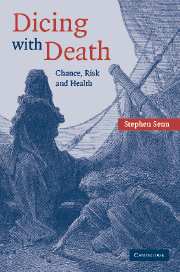9 - The things that bug us
Published online by Cambridge University Press: 11 August 2009
Summary
Faithfully we experiment, assuming
That death is a still undetected virus
Robert Graves, The VirusInfinite variety
There are at least two radically different views of history. One is that all is contingency. ‘For the want of a nail the battle was lost …’, or, as Pascal put it, ‘give Cleopatra a shorter nose and you'll change the face of the world’. It is a fine game to identify such incidents. Here is one. Apparently, when the Genovese were looking for a buyer for Corsica, the island was offered to the British. The price was considered too high and it went to the French. But for that we could have had Napoleon as a British soldier and, who knows, roast beef Marengo might have been as British as Yorkshire pudding. The other view is that history is determined by the operation of massive social forces, which render its course more or less predictable. This, of course, was the view of Marx and also of Hari Seldon, mathematician and founder of psychohistory, and the prophet of Isaac Azimov's Foundation novels.
On the whole it may be supposed that statisticians belong to the latter camp. As Laplace puts it in a passage we have already cited more than once, ‘The phenomena of nature are most often enveloped by so many strange circumstances, and so great a number of disturbing causes mix their influence, that it is very difficult to recognise them.
- Type
- Chapter
- Information
- Dicing with DeathChance, Risk and Health, pp. 162 - 185Publisher: Cambridge University PressPrint publication year: 2003



